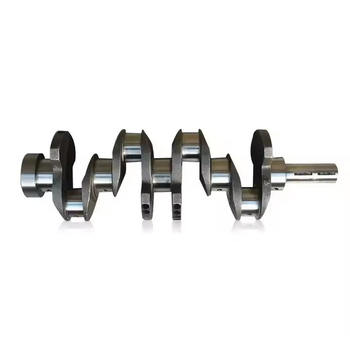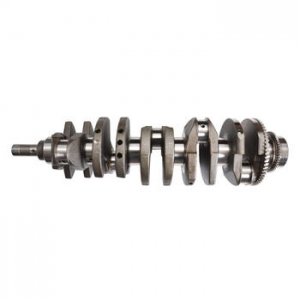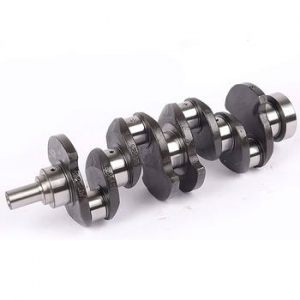How it all began
To truly appreciate the leaps and bounds in crankshaft sealing technology for marine engines, we must first look to the past. In the early days, marine engines relied on simple packing glands to seal their crankshafts. These consisted of braided ropes or rings compressed around the shaft to keep oil in and water out.
The rise of mechanical seals
As marine engines evolved in size and complexity, so too did the need for more efficient and reliable sealing solutions. Enter the mechanical seal – a device that uses precision-engineered components to create a robust, leak-free barrier. Early mechanical seals were rudimentary by today's standards, but they marked a significant step forward in crankshaft sealing technology.
Modern advancements
Fast forward to the present day, and you'll find that crankshaft sealing technology has come a long way. Here are some key innovations that have transformed the industry:
Dynamic lip seals
Dynamic lip seals, also known as rotary shaft seals, have revolutionized crankshaft sealing. These devices employ an elastomeric lip that rotates along with the shaft, creating a tight seal without the need for friction-inducing contact. The result? Improved efficiency, reduced wear, and extended seal life.
Cartridge seals
Cartridge seals are another game-changer in the world of marine engine crankshaft seals. By integrating all sealing components into a single, easily replaceable unit, cartridge seals simplify maintenance and minimize downtime. Plus, they're highly customizable, allowing engineers to tailor their sealing solutions to specific applications.
Adoption of advanced materials
As it turns out, material science plays a crucial role in the performance of crankshaft seals. Modern seals often incorporate advanced materials like silicon carbide and graphite, which offer superior heat resistance, wear properties, and chemical compatibility.
The impact on marine engine efficiency and environmental protection
These advancements in crankshaft sealing technology have had far-reaching implications for the marine industry. Improved sealing efficiency translates to reduced oil consumption, lower emissions, and enhanced engine performance. Moreover, the increased reliability of modern seals means fewer catastrophic failures and subsequent environmental damage.
What does the future hold?
So, where do we go from here? As marine engines continue to push the boundaries of size, power, and efficiency, so too will crankshaft sealing technology. Expect to see further developments in materials, design, and manufacturing techniques, all aimed at improving seal performance and minimizing environmental impact.
Embracing digital solutions
One area ripe for innovation is the integration of digital technologies into crankshaft sealing systems. Predictive maintenance tools, powered by artificial intelligence and machine learning, could soon enable operators to detect and address seal issues before they become critical.
In conclusion
The evolution of crankshaft sealing technology in marine engines is a fascinating tale of ingenuity and progress. From humble beginnings to cutting-edge solutions, this critical aspect of engine design has come a long way – and the journey is far from over. So, the next time you're aboard a ship, take a moment to appreciate the unsung heroes that keep its engine running smoothly: the crankshaft seals.
Your turn
Have you experienced the benefits of modern crankshaft sealing technology firsthand? Or perhaps you're curious about how these innovations could improve your own marine operations. Either way, we'd love to hear your thoughts. Share your experiences, questions, or ideas in the comments below!




